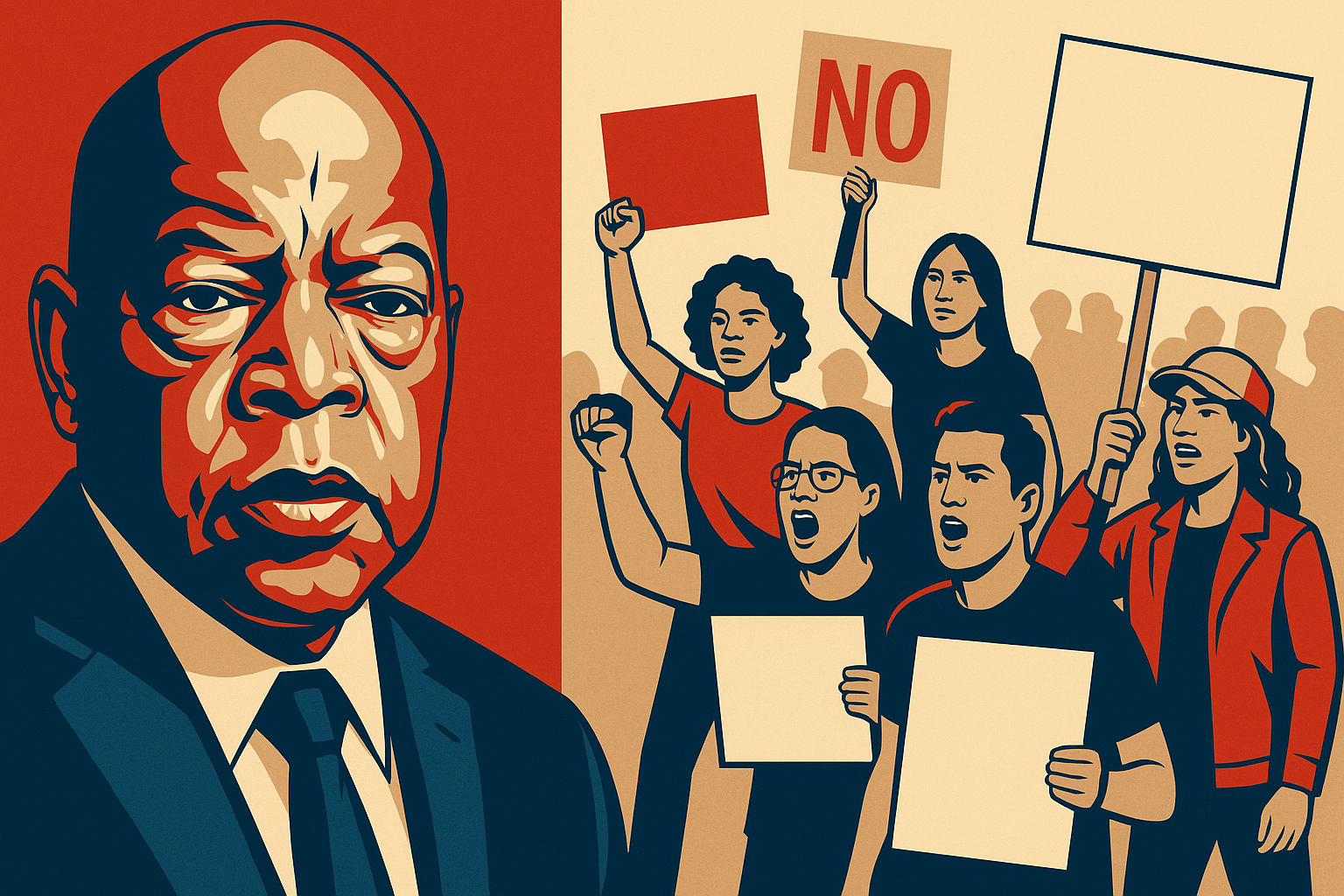On Thursday, July 17, tens of thousands of Americans are expected to gather at more than 1,600 locations across the United States in a coordinated nationwide protest titled Good Trouble Lives On. The protests, scheduled on the fifth anniversary of the death of civil rights icon Rep. John Lewis, are intended to challenge a wide range of policies associated with former President Donald Trump.
The phrase “Good Trouble” originates from Lewis himself, who encouraged Americans to engage in “good trouble, necessary trouble” in pursuit of social justice. Organizers, including the League of Women Voters, Declaration for American Democracy Coalition, and the Transformative Justice Coalition, have adopted the phrase to inspire peaceful activism aimed at addressing issues such as women’s rights, immigrant treatment, social welfare, and government use of force during protests.
Why July 17?
While major demonstrations are often held on weekends to maximize participation, this year’s organizers intentionally selected Thursday, July 17, to mark the anniversary of Lewis’s passing. With the blessing of Lewis’ family, the protests are being framed not as a somber memorial but as an active, hopeful continuation of his legacy.
“This is the largest one-day civil rights action in all 50 states and internationally in U.S. history,” said Barbara Arnwine of the Transformative Justice Coalition. Organizers emphasized that weekday timing would not reduce turnout, as many events are planned after traditional work hours to allow greater community involvement.
Nationwide and Localized Action
This protest wave follows a growing model of decentralization—encouraging activism in communities rather than focusing on one or two large cities. Events are planned in cities such as Chicago, Washington, D.C., Atlanta, St. Louis, and Annapolis, as well as smaller communities like Yonkers, New York, and Palm Beach County, Florida. In Palm Beach County, which houses Trump’s Mar-a-Lago estate, five events are scheduled, including a march, car parade, and speakers honoring Lewis.
In Annapolis, activists will march across two local bridges as a symbolic gesture reflecting Lewis’s historic march across the Edmund Pettus Bridge in Selma, Alabama, during the 1965 voting rights campaign.
“We’re still marching for civil and human rights like he did,” said Lynda Davis of Showing Up for Racial Justice Annapolis.
Activities Beyond Protests
Organizers are also hosting a range of civic engagement events: voter registration drives, educational sessions, food drives, and “moral assemblies” at federal buildings and statehouses. These efforts are designed to create lasting local networks for political participation, especially among younger generations.
In Yonkers, for example, children will be invited to participate in activities like chalk art and sign-making while adults receive information on voting rights. “The idea is to make a little noise,” said Eileen O’Connor of NYCD 16/15 Indivisible.
White House Response
The Trump campaign and supporters have defended the administration’s policies, emphasizing that Trump is delivering on campaign promises. “Nearly 80 million Americans gave President Trump a historic mandate to Make America Great Again, and he is delivering on that promise in record time,” said White House spokesperson Liz Huston.
Nonetheless, protest organizers remain focused on John Lewis’s legacy and what they describe as the moral obligation to resist policies that they believe undermine American democracy and civil liberties.
“What would he encourage us to do in this moment?” asked Celina Stewart of the League of Women Voters. “That is going to look different for all of us, but I know that all of us can do something—and many of us can do many things.”
The Good Trouble Lives On protests are the latest in a series of monthly national demonstrations that began in April, reflecting a sustained movement for civic engagement, human rights, and democratic accountability.


